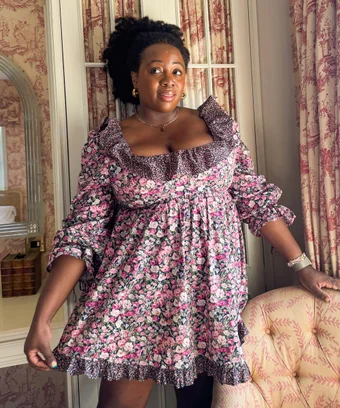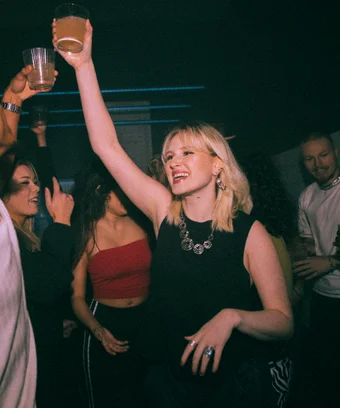In today’s digital world, oversharing isn’t just common — it’s expected. From TikTok “storytimes” to personal revelations on Instagram, social media thrives on the intimate details we offer. But for every person brave enough to tell their truth, there’s a crowd ready to dissect, challenge, or twist that narrative. For content creator Kristabel Plummer, that reality came crashing down when a spontaneous TikTok turned into a viral firestorm.
Kristabel, a 37-year-old British content creator, filmed what she thought would be a simple “Get Ready With Me” video during a press trip. As she did her makeup and picked her outfit, she casually reflected on a personal aspect of her life: growing up without close Black friends. Raised in Bromley — a predominantly white area of London — and educated at an all-girls school with a similar demographic, Kristabel shared that while she did meet Black girls in her youth, many of those interactions were difficult or traumatic. She spoke candidly about how those early experiences influenced the types of friendships she formed later in life, even as she encountered more Black women at university and in her professional life.
What was meant to be a vulnerable moment quickly exploded into a polarizing debate.
Soon after the video was posted on April 11, it caught fire online. Thousands of people chimed in — not just in the comment section, but through stitched videos, reaction posts, and even think pieces. For some, Kristabel’s story was a mirror, reflecting a reality rarely spoken about in public. For others, it sparked outrage. Her personal story became the battleground for a larger conversation about race, identity, and what constitutes a “valid” Black experience.
Many accused her of not trying hard enough to connect with Black peers or internalizing negative views about her identity. Others argued she was reinforcing harmful stereotypes. As the backlash mounted, Kristabel found herself at the center of an emotionally charged discourse — one that often seemed to forget she was a real person behind the screen.
“I felt judged,” Kristabel later shared in an interview. “Only about 3% of viewers actually watched the full video. A lot of people missed the nuance.” She emphasized that her story was not about rejecting Blackness but rather navigating a complicated and painful dynamic from her youth. Yet that context was often drowned out by the noise.
Still, Kristabel didn’t disappear. She stayed engaged, replying to comments and addressing criticisms head-on. It wasn’t easy — the emotional toll of explaining yourself to strangers day after day is immense. And in an era where online platforms profit from drama, the support systems for creators dealing with this kind of scrutiny are minimal. “People were monetizing their critiques of me,” she said, “while I couldn’t even access monetization until I hit 10,000 followers.”
Despite everything, Kristabel stood by the value of sharing her truth. Vulnerability has long been part of her online persona. She previously went viral after opening up about never having been in a romantic relationship. And during lockdown, she shared the grief of losing her grandmother in real time. To her, storytelling isn’t just content — it’s connection. It’s healing.
Still, this latest experience has changed her. “It didn’t stop me, but it made me more thoughtful,” she said. She now considers more carefully what she chooses to share and when. One guiding principle she’s adopted: only speak about your scars, not your wounds. That is, don’t expose parts of yourself that are still raw to the internet’s unpredictable response.
And she’s not alone in that advice. Many creators — especially Black women — have learned the hard way that the internet doesn’t always reward honesty with kindness. For every person who resonates with a vulnerable story, there may be ten others eager to tear it apart. But that doesn’t mean we should stop sharing — it just means we need safer spaces to do so.
In fact, some of the most powerful reactions to Kristabel’s video were those of solidarity. Viewers messaged her to say, “I thought I was the only one,” or “Thank you for saying this out loud.” In a culture where curated perfection is the norm, moments of unfiltered truth can offer a lifeline. They remind us that we’re not alone in our struggles or confusion.
As the digital landscape continues to evolve, stories like Kristabel’s highlight a crucial tension: the power of vulnerability versus the cost of exposure. For Black creators, that line is often even thinner, with their identities politicized and scrutinized in ways others rarely face. But the answer isn’t to silence those voices. It’s to listen better, judge less, and build platforms that support — rather than punish — honesty.
“Vulnerability is powerful,” Kristabel says. “We just need more space to do it safely.”
In a world that asks us to be open, it’s time we start asking how we can be kinder to those who are.




